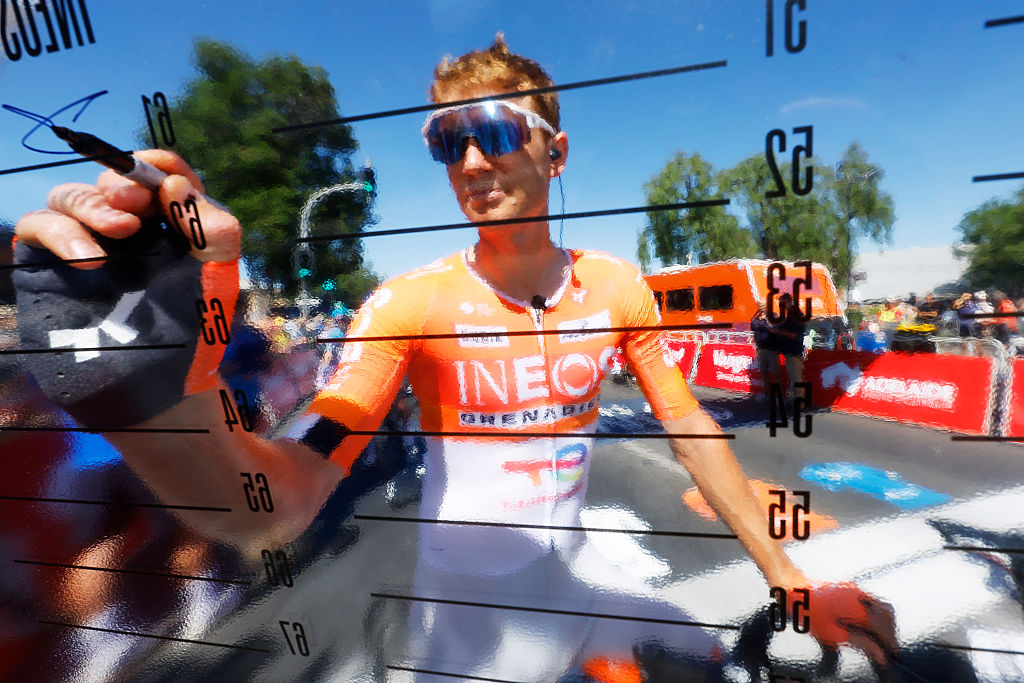Fuglsang at Vuelta a Espana with an eye to Yorkshire Worlds
After crashing out of Tour de France, Dane will support Izagirre and Lopez in Spain
The latest race content, interviews, features, reviews and expert buying guides, direct to your inbox!
You are now subscribed
Your newsletter sign-up was successful
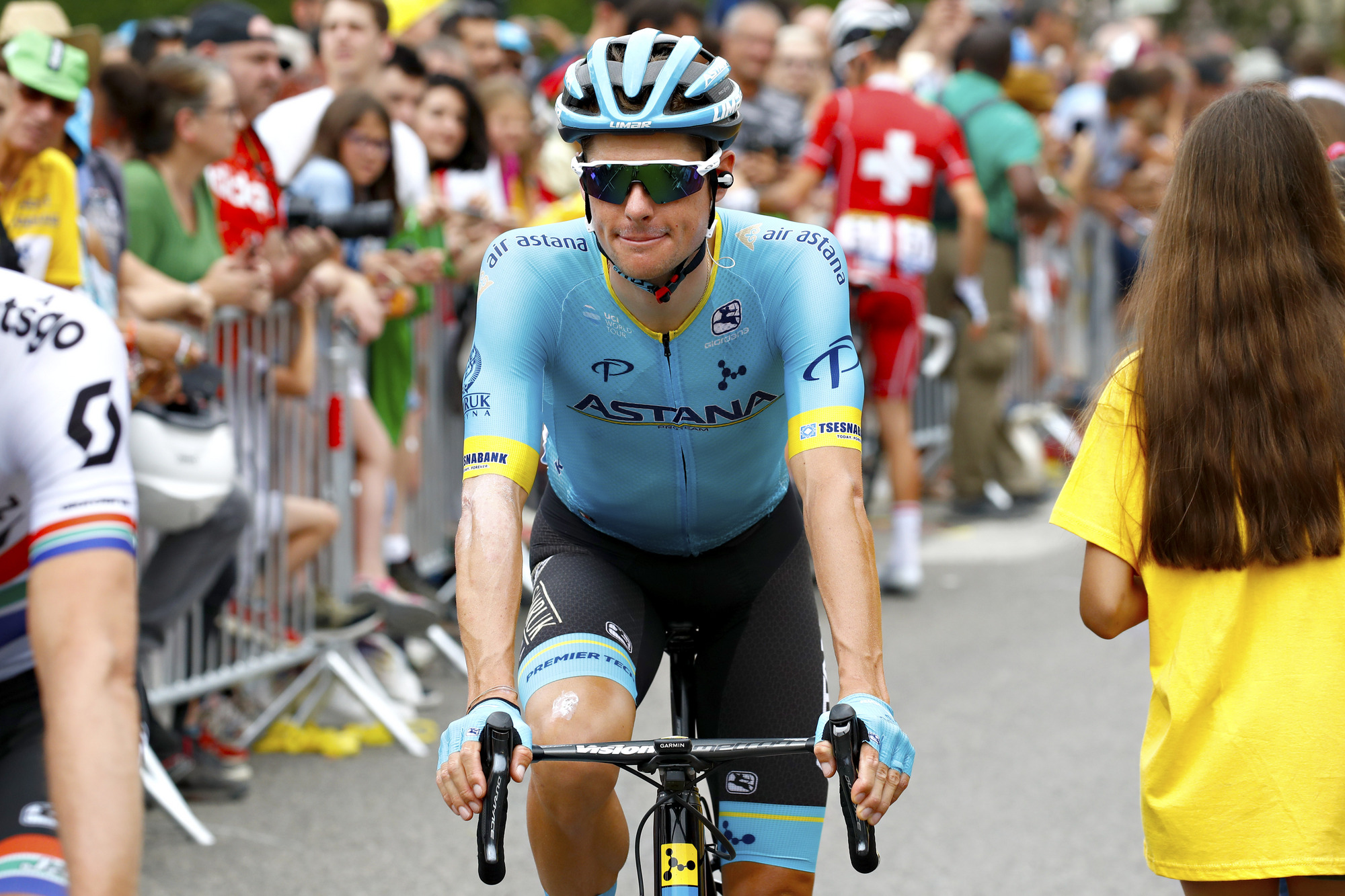
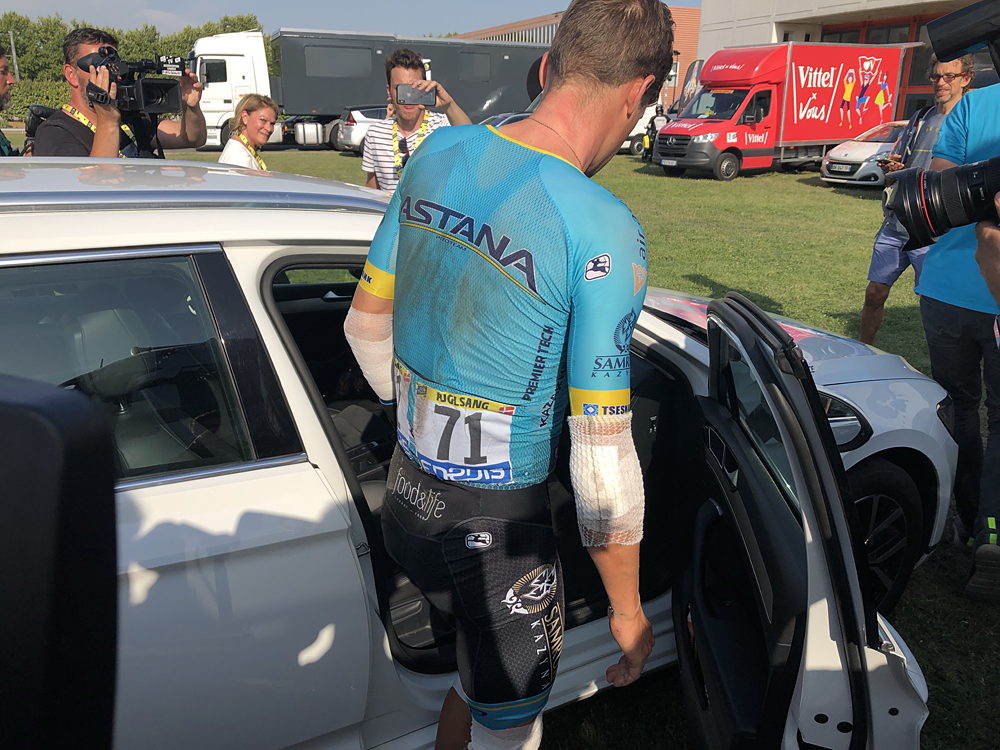
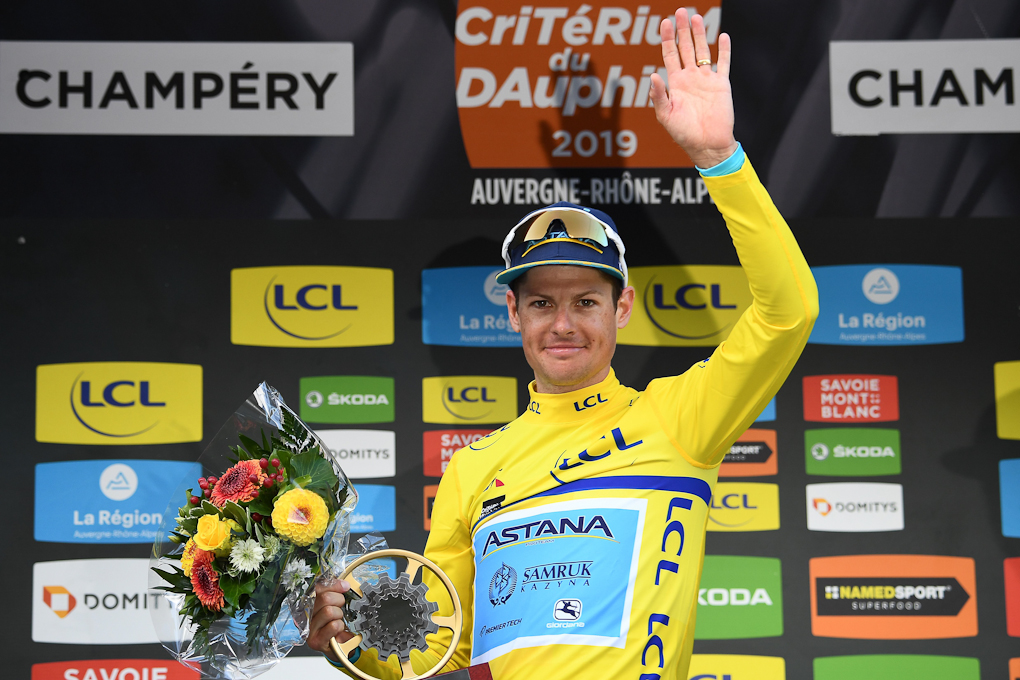
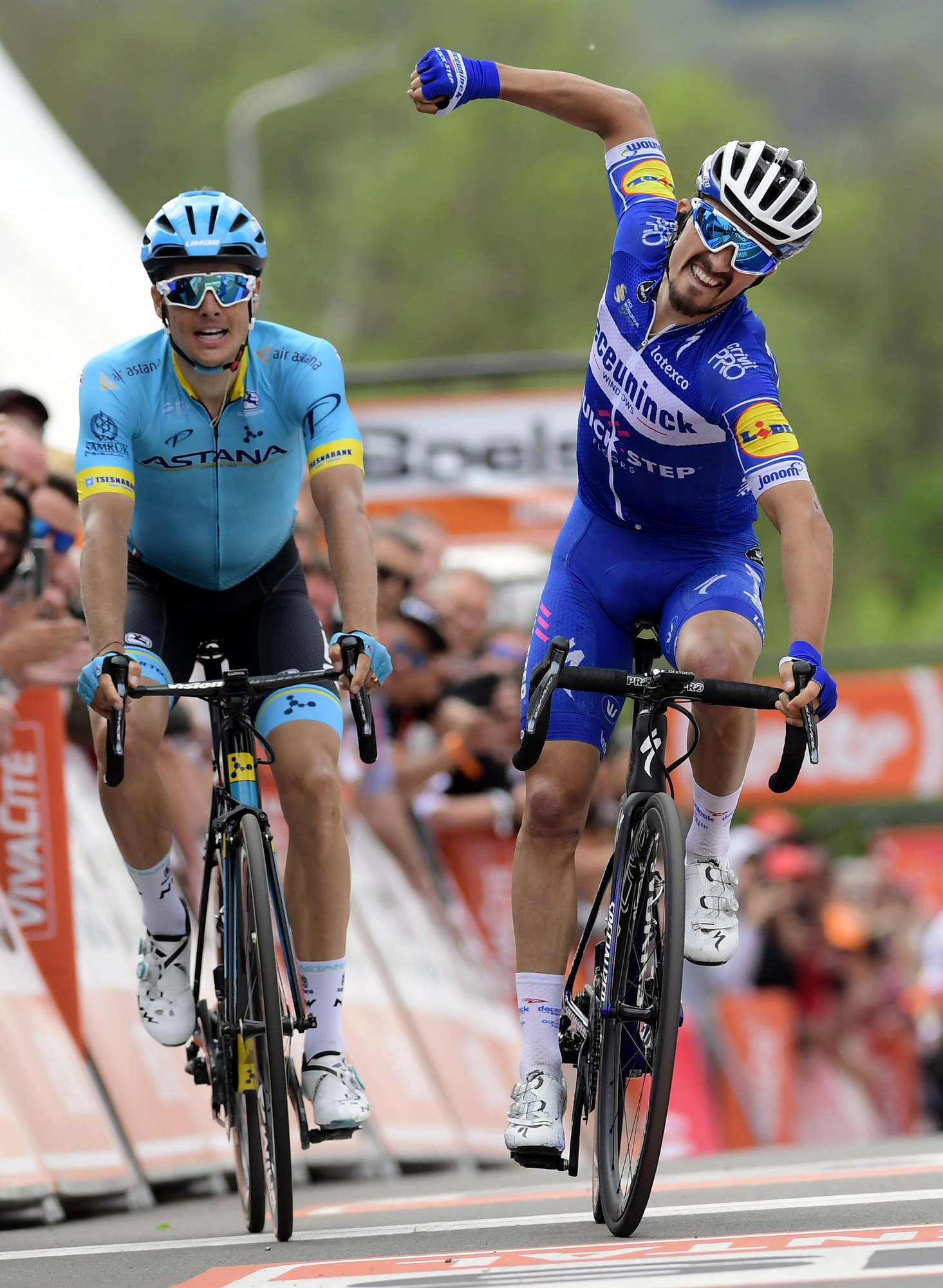
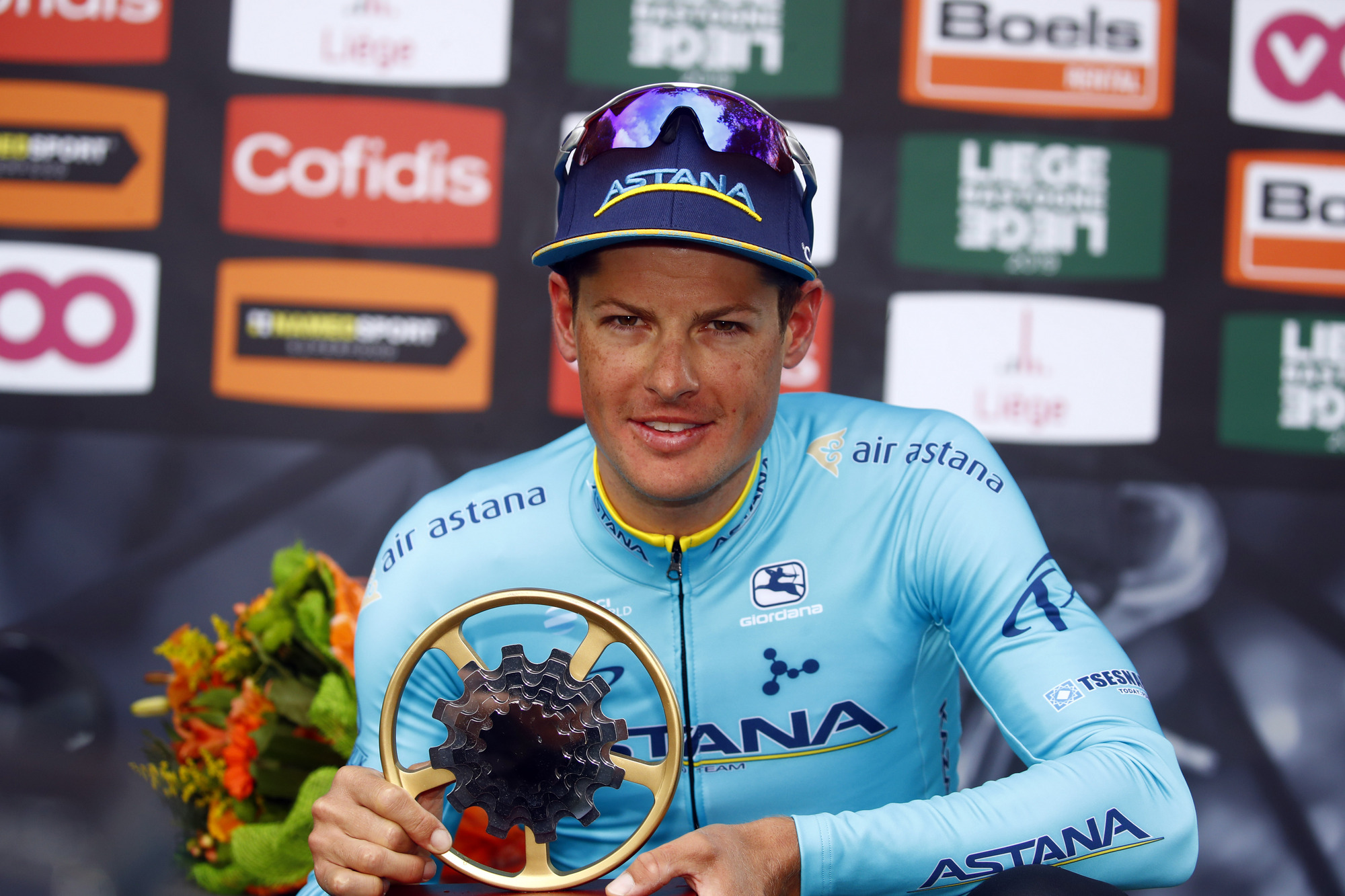
Less than a month after dramatically crashing out of the Tour de France, Jakob Fuglsang (Astana) is back on the Grand Tour trail at the Vuelta a España, but with very different objectives.
A pre-race favourite in the Tour after winning the Critérium du Dauphiné for a second time, Fuglsang was injured in a crash on stage 16, when he was lying ninth overall, suffering heavy contusions to his hand, arm and knees.
Four weeks later, Fuglsang comes into the Vuelta with three different objectives, none of them GC. Instead, he’s aiming to support the team’s Vuelta and perhaps have a crack at some stage wins, all while building his race condition for the end-of-season Classics and the World Championships.
"I don’t feel much from the crash anymore, all the wounds are more or less healed, although mentally it was a big blow and a bit difficult to get back on the bike, after punishing myself for the Tour and then not getting what I went for," Fuglsang told Cyclingnews before the Vuelta start in the province of Alicante.
"I’m not 100 per cent - for sure I’m not - but I hope to find the legs in the first 10 days or two weeks and then finish the Vuelta in a good way."
History certainly is in Fuglsang’s favour when it comes to doing well in the Vuelta a España, and particularly in this area. In nearby Benidorm, where stage 2 starts on Sunday, he was the Vuelta’s first leader in 2011 during his time with Leopard-Trek, which is the only time the Dane has led a Grand Tour to date. Then in 2013, he was with Astana’s Vuelta line-up when they won the opening TTT, albeit on the other side of Spain, in Galicia.
"Like I said to the other guys, I’ve started this race three times, twice with a team time trial and I’ve been on the winning team both times, and hopefully we can do that again on Saturday,” said Fuglsang, who recently extended his contract with Astana.
The latest race content, interviews, features, reviews and expert buying guides, direct to your inbox!
And after Saturday? "I will get the possibility to go for stages, but GC is out. I don’t think I have the condition so I will not spend my energy on GC, try to take it a little more relaxed, try to find my legs.
"We have Miguel Angel Lopez and Ion Izagirre who will normally try to do GC. I will try to support the team as well as possible and go for it on the stages if the condition is there."
Fuglsang added that a second Grand Tour was always in the game plan for 2019 even before his crash at the Tour. Once he began to recover well after the fall, that likely option of three weeks racing in Spain this August and September quickly became a certainty.
"Of course, with the crash we had to re-think and to wait and see how I was feeling and when I’d be back on the bike," Fuglsang said. "The Vuelta was always something we’d talked about as a big probability, even before."
Some riders with top spring Classics results, as was Fuglsang’s case this spring when he secured a spectacular victory in Liège-Bastogne-Liège as well as top-three results in Amstel Gold Race and La Flèche Wallonne, have used the Vuelta as a way of going into the off-season with a solid base for the following April. But in the Dane’s case, he’s thinking more in the mid-term.
"It’s more the last part of this season I’m thinking about," Fugslang told Cyclingnews.
"I want to focus on the Worlds and Italy, Lombardy, the races at the end of the season."
Fuglsang's last top result in the Italian autumn classics came way back in 2010, when he finished fourth in Il Lombardia, although last year he also placed a solid eighth in Milano-Torino.
Perhaps more to the point, after this year’s Ardennes Classics campaign, he’s certainly got much fresher reasons to be motivated when it comes to doing well in the hilly one-day races and the equally undulating World Championships route in Yorkshire. With that in mind, a very hilly Grand Tour in Spain could well be exactly what Fuglsang needs in his legs right now.
Alasdair Fotheringham has been reporting on cycling since 1991. He has covered every Tour de France since 1992 bar one, as well as numerous other bike races of all shapes and sizes, ranging from the Olympic Games in 2008 to the now sadly defunct Subida a Urkiola hill climb in Spain. As well as working for Cyclingnews, he has also written for The Independent, The Guardian, ProCycling, The Express and Reuters.

